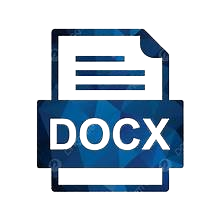TRANSFORMASI PARADIGMA HUKUM PERTANAHAN DI INDONESIA: DARI PENDEKATAN REPRESIF MENUJU PARTISIPATIF
Keywords:
Land Law, Repressive Approach, Participatory, Agrarian Conflict, Indigenous PeoplesAbstract
The paradigm of land law in Indonesia faces significant challenges due to the dominance of a repressive approach in land management and control by the state. This approach often disregards community participation and the rights of indigenous peoples, leading to prolonged agrarian conflicts. This study aims to analyze the transformation of land law from a repressive approach to a more participatory and just legal framework. The research employs a normative juridical method combined with historical and sociological approaches, analyzing legislation, legal documents, and case studies of agrarian conflicts. The findings indicate that transforming land law requires structural and institutional changes, recognition of indigenous collective rights, and active community involvement in all stages of land policy. This paradigm shift is essential in developing a democratic, transparent, and community-oriented land law system.
Downloads
References
Asmaria, A., Setiawati, R., Apriadi, E. A., & Istiqomah, S. (2025). Community Involvement In The Development Of Tourism Villages In Turgak Village Belalau Subdistrict West Lampung. Jurnal Noken: Ilmu-Ilmu Sosial, 11(1), 115–120.
Erlyani, R., Prihantono, P., & Syahuri, T. (2024). Dinamika Politik Hukum Dalam Konteks Perubahan Sosial. Lex Sharia Pacta Sunt Servanda: Jurnal Hukum Islam Dan Kebijakan, 2(1), 14–24.
Kristanto, K., Judijanto, L., Reumi, F., Thahir, T., Raflinda, R., Yase, I. K. K., Rahadian, D., Pujiningsih, D., Fa, L. T., & Fatony, S. (2025). Pengantar Hukum Indonesia. Pt. Green Pustaka Indonesia.
Nitiyudo, S. (2023). Regulasi Ideal Pendaftaran Tanah Terhadap Bukti Sertipikat Yang Berbasis Kepastian Hukum. Universitas Islam Sultan Agung.
Prayoga, I., & Kasmanto Rinaldi, S. H. (2023). Restorative Justice Di Desa: Transformasi Penyelesaian Konflik Menuju Kekeluargaan. Mega Press Nusantara.
Siburian, S. I. (2024). Sejarah Hukum Indonesia: Evolusi Dari Kolonialisme Ke Reformasi Progresif. Harisa: Jurnal Hukum, Syariah, Dan Sosial, 1(1)), 37–54.
Sj, A. S. (N.D.). Fiqh Proletar: Rekonstruksi Nalar Kepentingan Umum Dalam Kasus Pembebasan Tanah Untuk Pembangunan Menuju Ke Arah Transformasi Sosial Yang Progresif-Humanis Ahmad Syafi’i Sj. Fikrotuna, 3(1), 264581.
Suratno, S. (2025). Rekosntruksi Regulasi Kewenangan Desa Dalam Melaksanakan Pemerintahan Desa Dalam Sistem Ketatanegaraan Berbasis Nilai Keadilan Pancasila. Universitas Islam Sultan Agung Semarang.
Syafi, A., & Sj, I. (2016). Fiiqh Proletar: Rekonstruksi Nalar Kepentingan Umum Dalam Kasus Pembebasan Tanah Untuk Pembangunan Menuju Ke Arah Transformasi Sosial Yang Progresif-Humanis. Fikrotuna: Jurnal Pendidikan Dan Manajemen Islam, 5(1).
Toloh, P. W. Y., & Pangau, V. (2023). Urgensi Lembaga Negara Independen Penyelesaian Konflik Pertanahan Dan Proses Penyelesaian Yang Berbasis Teori Hukum Progresif. Jurnal Pertanahan, 13(2).
Ulfah, U. L. U. (2025). Implementasi Transformasi Pendaftaran Tanah Layanan Elektronik Pertanahan Di Kantor Pertanahan Kabupaten Tegal. Universitas Islam Sultan Agung Semarang.
Wicaksono, S., Bagas, B., & Reyhansyah, A. (2024). Penyelesaian Sengketa Dan Konflik Pertanahan Di Indonesia: Kajian Politik Hukum: Resolution Of Land Disputes And Conflicts In Indonesia: A Study Of Legal Politics. Dialogia Iuridica, 16(1), 68–95.
Downloads
Published
How to Cite
Issue
Section
License
Copyright (c) 2025 Rendy Renaldy

This work is licensed under a Creative Commons Attribution-ShareAlike 4.0 International License.
Authors who publish with this journal agree to the following terms:
- Authors retain copyright and grant the journal right of first publication with the work simultaneously licensed under Creative Commons Attribution 4.0 International License that allows others to share the work with an acknowledgment of the work's authorship and initial publication in this journal.
- Authors are able to enter into separate, additional contractual arrangements for the non-exclusive distribution of the journal's published version of the work (e.g., post it to an institutional repository or publish it in a book), with an acknowledgment of its initial publication in this journal.
- Authors are permitted and encouraged to post their work online (e.g., in institutional repositories or on their website) prior to and during the submission process, as it can lead to productive exchanges, as well as earlier and greater citation of published work (Refer to The Effect of Open Access).








